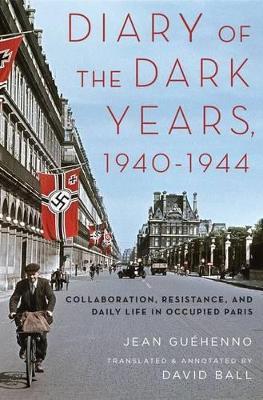Diary of the Dark Years, 1940-1944: Collaboration, Resistance, and Daily Life in Occupied Paris

Diary of the Dark Years, 1940-1944: Collaboration, Resistance, and Daily Life in Occupied Paris
cultural tradition he loved. Guéhenno's diary often includes his own reflections on the great texts he is teaching, instilling them with special meaning in the context of the Occupation. Complete with meticulous notes and a biographical index, Ball's edition of Guéhenno's epic diary offers readers a deeper understanding not only of the diarist's cultural allusions, but also of the dramatic, historic events through which he lived.
PRP: 148.74 Lei
Acesta este Prețul Recomandat de Producător. Prețul de vânzare al produsului este afișat mai jos.
118.99Lei
118.99Lei
148.74 LeiLivrare in 2-4 saptamani
Descrierea produsului
cultural tradition he loved. Guéhenno's diary often includes his own reflections on the great texts he is teaching, instilling them with special meaning in the context of the Occupation. Complete with meticulous notes and a biographical index, Ball's edition of Guéhenno's epic diary offers readers a deeper understanding not only of the diarist's cultural allusions, but also of the dramatic, historic events through which he lived.
Detaliile produsului










